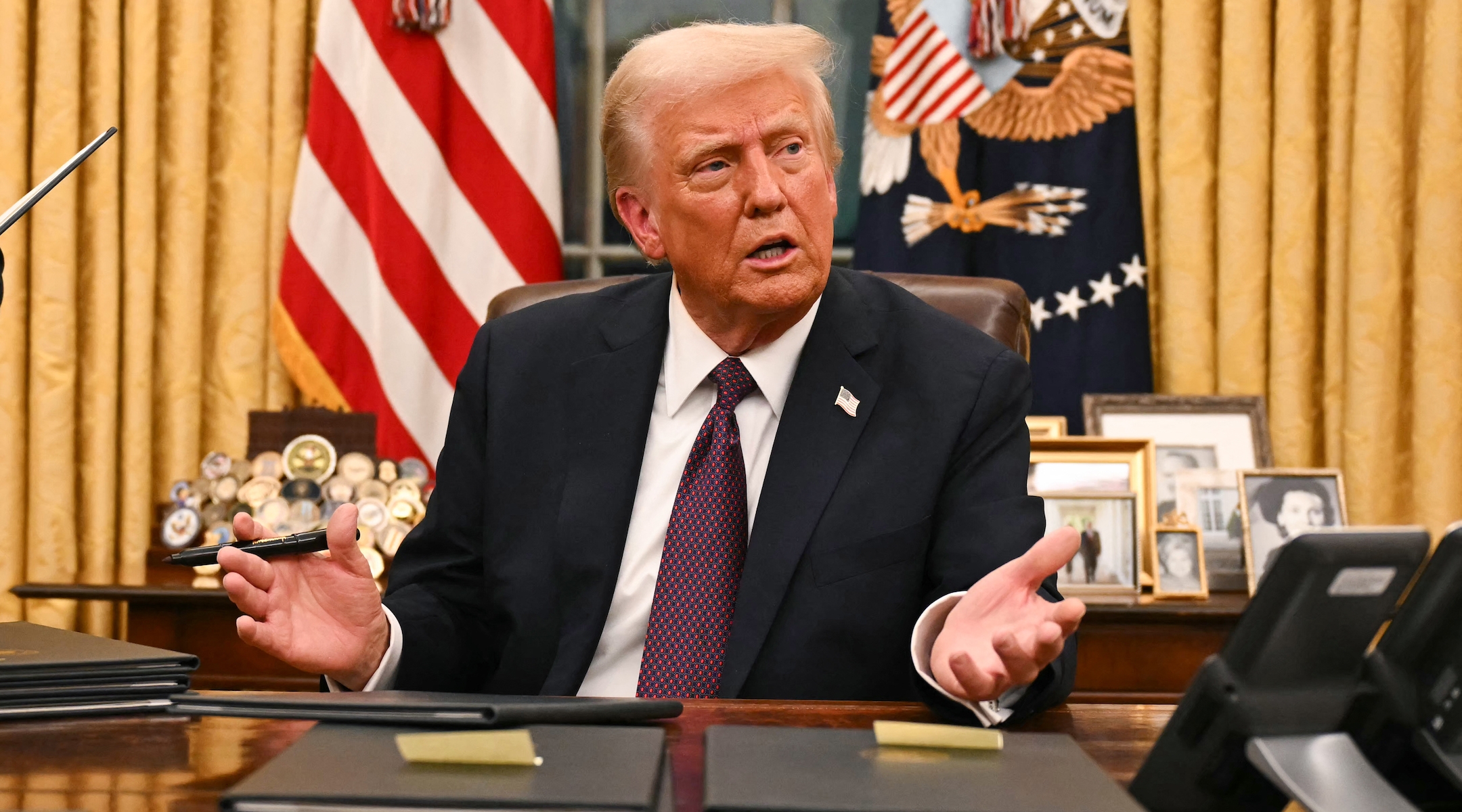A looming existential crisis confronts TikTok. Come January 19th, a divestiture deadline will kick in unless the Supreme Court intervenes. (Either ByteDance, TikTok’s Beijing-based parent, sells the social media platform with over 1 billion monthly users, or it will be prohibited from operating in the United States.) Nine days earlier, on January 10th, the high court will hear two hours of argument on the platform’s fate. If TikTok loses, app stores like Apple, Google, and others will be barred from offering TikTok to new users—for all intents and purposes, a technological death sentence.
This dictum, enacted into law in April, stems from an informed fear that the Chinese Communist Party would use TikTok to access personal data and surveil Americans.
“Communications applications that are owned and operated by companies controlled by foreign adversary countries present a clear threat to the national security of the United States,” in the words of a House committee.
The TikTok saga showcases tensions within the GOP. First broached by President Donald Trump in a 2020 executive order, the doomsday scenario reappeared last spring. On the other hand, Trump is now boosting TikTok, opposing the ban he once championed. He even credits the app for playing a role in his political resurrection.
“I have a warm spot in my heart for TikTok because I won youth by 34 points,” he said at a December 16th press conference. “And there are those that say that TikTok has something to do with that.” To top it off, he hosted Shou Chew, CEO of TikTok, at Mar-a-Lago that same day.
For the record, Trump failed to win the under-30 vote in November, but he did make a strong showing. Regardless, his 2020 executive order painted a bullseye on the app.
“The spread in the United States of mobile applications developed and owned by companies in the People’s Republic of China (China) continues to threaten the national security, foreign policy, and economy of the United States,” he declared back then. “Action must be taken to address the threat posed by one mobile application in meticulous, TikTok.”
During the 2024 Republican presidential primaries, Nikki Haley—former South Carolina governor and Trump’s first-term U.N. ambassador—saw even more menace in TikTok. Against the backdrop of Hamas’ attack on Israel and campus unrest, she argued that the ubiquitous app purveyed antisemitism.
The strictures aimed at TikTok eventually re-emerged as part of a broader aid package to Israel and Ukraine. The Protecting Americans from Foreign Adversary Controlled Applications Act, as it came to be known, also branded China, Russia, Iran, and North Korea as “foreign adversaries”—in case anyone needed reminding.
A ton of money is at stake. Goldman Sachs estimates that the app-driven, “creator economy could approach half-a-trillion dollars by 2027.” TikTok is a large but not exclusive part of that.
With an American base of 170 million users and creators, it does not intend to lose them. Enter Jeff Yass, co-founder of Susquehanna International Group, a trading company. Its 15 percent stake in ByteDance is valued at about $26 billion. As fate would have it, Susquehanna was also the largest institutional investor in Digital World Acquisition Corporation, which merged with Trump Media & Technology Group, aka Truth Social, in late March.
(For the record, Susquehanna and other U.S. investment firms, including BlackRock, General Atlantic, and others own 60 percent of ByteDance). Does this explain Trump’s pirouette on ByteDance?
The plot thickens. In March, Trump met with Yass and jettisoned his prior hostility to Chinese ownership of the platform. “If you get rid of TikTok, Facebook and Zuckerschmuck will double their business,” Trump posted to Truth Social.
The competitor of my adversary is my friend, so to speak.
“I don’t want Facebook, who cheated in the last Election, doing better,” he added. “They are a true Enemy of the People!”
On X, Elon Musk trumpeted the sentiment: “Trump’s statement there is correct.” With a significant presence in China, Musk may be loath to offend Xi and the country’s other leaders, regardless of whether TikTok is a competitor to his X platform.
By late spring, TikTok and ByteDance commenced a legal challenge to the ban, arguing that the legislative attack failed constitutional muster. Amicus briefs transcended the usual liberal-conservative and left-right divides.
To illustrate, Zephyr Teachout, a Bernie Sanders backer and former challenger to Andrew Cuomo for the Democratic nomination for governor of New York, who has written for this magazine, joined a friends-of-court brief backing the government filed by Mark Meador, a former aide to Senator Mike Lee, the Utah Republican, and a one-time fellow at the Heritage Foundation. Matt Stoller, a former staffer to Sanders on the Senate budget committee and an antitrust advocate, was also aboard.
Likewise, a bipartisan coalition of members of Congress backed the law. Marco Rubio, Trump’s pick for Secretary of State; Elise Stefanik, Trump’s choice for U.N. ambassador; and Steve Scalise, the House majority leader, supported it, along with former Speaker Nancy Pelosi, Representative Ritchie Torres, and Elissa Slotkin, the Democratic senator-elect from Michigan.
On the other half of the divide, the libertarian Cato Institute (a beneficiary of Yass’ largesse), the Knight First Amendment Institute at Columbia University, the Asian American Federation, the Hispanic Heritage Foundation, and the Muslim Public Affairs Council all backed TikTok. Intellectual and demographic diversity filled the air.
Earlier in December, a three-judge appellate panel ruled against Yass & Co. “The First Amendment exists to protect free speech in the United States. Here, the Government acted solely to protect that freedom from a foreign adversary nation and to limit that adversary’s ability to gather data on people in the United States,” Judge Douglas Ginsburg, a Reagan appointee, wrote.
“As the government details and petitioners do not dispute, the PRC engages in an aggressive, global campaign of influence operations against U.S. interests, relying heavily on the internet and social-media platforms.”
Significantly, the court also noted that the judiciary traditionally defers to the executive branch’s and Congress’s judgment on national security matters. In those circumstances, the “government’s ‘evaluation of the facts’ is ‘entitled to deference,’” Ginsburg opined.
By extension, it is unlikely that the Supreme Court will declare the TikTok ban unconstitutional—a reminder, in 2018, the Roberts court deferred to executive prerogative and upheld the so-called Muslim travel ban. With national security front and center, reversal here appears unlikely.
Regardless of the outcome, tensions between the U.S. and China remain on the front burner. To avoid a government shutdown, Congress removed a provision from the recent continuing resolution that would have curbed American investment in China.
In the eyes of House Democrats, Musk’s nexus to Beijing played a major role in scuttling the initial budget deal. Fun fact: Musk’s Tesla is the sole foreign auto manufacturer permitted to operate in China without a local partner.
“His bottom line depends on staying in China’s good graces,” Representative Jim McGovern, a Massachusetts Democrat, wrote of the world’s richest man. “He wants to build an AI data center there, too—which could endanger U.S. security. He’s been bending over backward to ingratiate himself with Chinese leaders.”
Representative Rosa DeLauro, a senior Connecticut Democrat, took things further in a letter, writing: “It is particularly disturbing that Musk may have sought to upend this critical negotiated agreement to remove a bipartisan provision regulating U.S. investments in China in order to protect his wallet and the Chinese Communist Party at the expense of American workers, innovators, and businesses.”
In turn, Musk called for the soon-to-be 18-term member’s expulsion from the House, labeling DeLauro an “awful creature.” As for Trump, his relationship with speech rights remains strained.
In case anyone forgot, in January 2018, Trump threw a brushback pitch at author Michael Wolff over Fire and Fury, the first of multiple tell-alls emanating from his White House. Without citing any particular false content or national security concerns, Trump threatened legal action afterThe Guardian published pre-release excerpts from the book. No one confused Fire and Fury with the Pentagon Papers, and no one should assume Trump’s latest position on TikTok will be his last.
Trump is undoubtedly mindful that popular support for restricting TikTok is minimal. Less than one-third of Americans support the ban, down from half in March 2023—the shift cuts across party lines. Republican backing for restrictions on TikTok waned from 60 percent to 42 percent. Democrats saw a similar double-digit slide, from 43 percent to 24 percent. No wonder he asked the Supreme Court to delay argument in the TikTok case until after he assumed the presidency.
Ironically, a loss for Yass, TikTok, and Trump at the Court would still present the president-elect with a silver lining—more power. If the Court upholds the ban, it will feed Trump’s expansive views of executive power and his authority, even if the issue here is a legislative ban, because it’ll widen the court’s leeway for national security considerations when it comes to speech. In case anyone forgot, he has already mused about being a dictator for at least a day.











